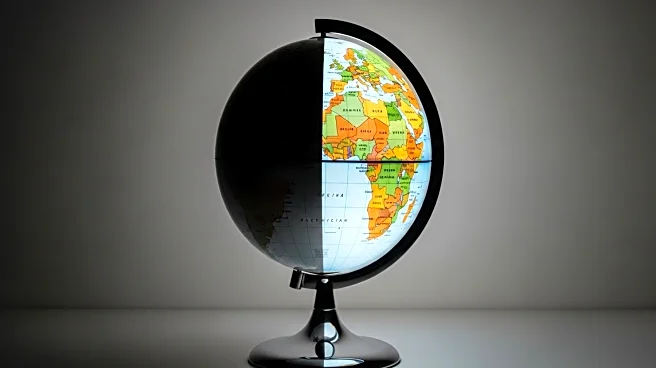What is the story about?
What's Happening?
The United States is facing a diplomatic divergence from its allies regarding the recognition of Palestinian statehood. Britain, Canada, and Australia have announced their recognition of Palestine as a state, positioning themselves in contrast to the stance of the Trump administration. This development comes ahead of a global meeting where the issue of Palestinian statehood is expected to be a significant topic of discussion. The U.S. has historically been cautious about recognizing Palestine as a state, often citing concerns about the implications for peace negotiations in the Middle East. This divergence highlights a growing gap between the U.S. and other Western nations on Middle Eastern policy.
Why It's Important?
The recognition of Palestinian statehood by key U.S. allies could have significant implications for international relations and Middle Eastern diplomacy. It may influence the dynamics of peace negotiations and affect the U.S.'s ability to mediate in the region. The differing stances could lead to diplomatic tensions and impact the U.S.'s relationships with these allies. Additionally, this divergence may affect the perception of U.S. leadership in global diplomatic efforts, particularly in the Middle East. The recognition by other nations could also embolden Palestinian efforts for statehood and alter the geopolitical landscape.
What's Next?
The upcoming global meeting will likely address the issue of Palestinian statehood, with discussions expected to focus on the implications of recognition by various countries. The Trump administration may face pressure to reconsider its stance or provide a rationale for its position. Diplomatic negotiations and discussions are anticipated, with potential impacts on U.S. foreign policy and its role in Middle Eastern peace processes. Allies may seek to persuade the U.S. to align more closely with their views, potentially leading to shifts in diplomatic strategies.
Beyond the Headlines
The recognition of Palestinian statehood by U.S. allies could have long-term implications for international law and the rights of states. It may set a precedent for other nations considering similar recognition, influencing global diplomatic norms. The divergence also raises questions about the ethical responsibilities of nations in supporting self-determination and human rights. The situation could lead to broader discussions on the role of international organizations in mediating statehood disputes.















